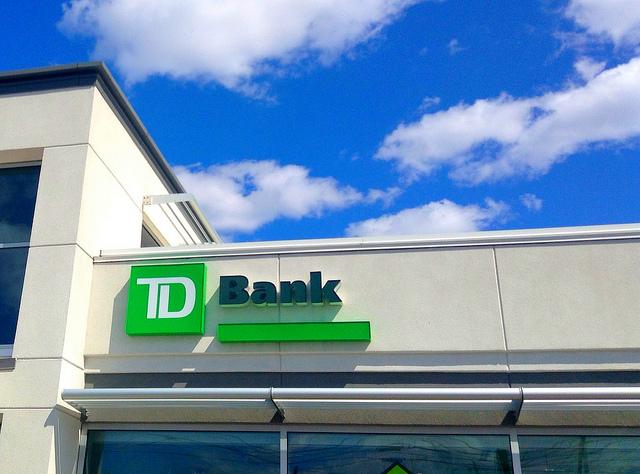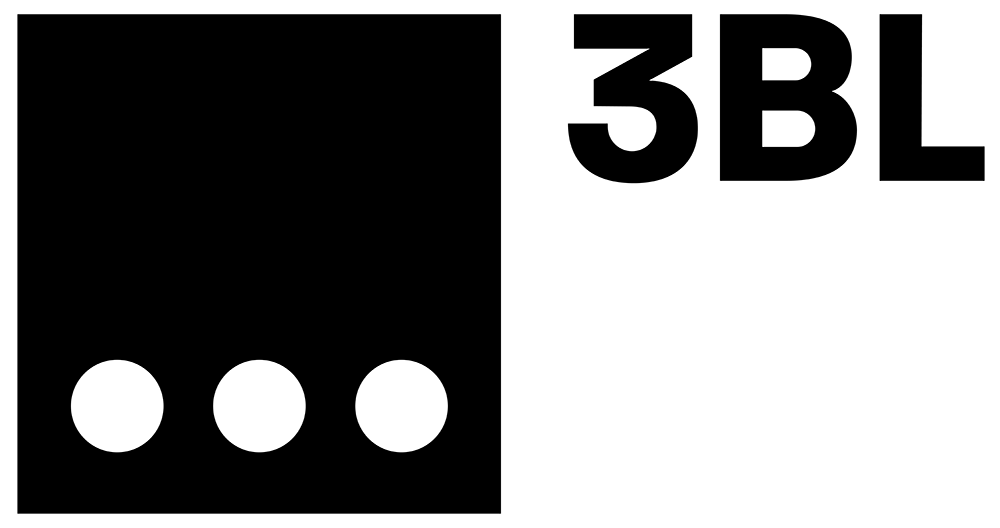When a Financial Institution Takes a Stand on Corporate Citizenship
by Laura K. Wise

Originally published on TriplePundit
The financial services industry is one in particular where a commitment to a triple bottom line is most critical. In leading up to 3BL Forum: Brands Taking Stands – The Long Viewlater this month, TriplePundit sat down with Andrea Barrack, Vice President of Global Corporate Citizenship at TD Bank, to talk about the stand that TD has taken to be the best corporate citizen possible. Barrack shared the process of creating and implementing TD’s sustainability platform and why a well thought out corporate strategy is no longer a nice to have, but a core business initiative.
After the financial crash of 2008, it’s no surprise that big banks lost the trust of many Americans. The millennial generation, the largest generation currently in the U.S. labor force, began to enter the workforce in droves in 2008. The economic state of the U.S. in the wake of the crash left a bad taste in many young citizens’ mouths as they began to search for their first jobs out of college. According to a recent Gallup Poll today in 2018, 10 years after the crash, only 27% of Americans trust big banks. Mistrust, coupled with rapidly changing digital trends and options for “investing” (as in cryptocurrency), is forcing large banks to prove that they care about and are working for the wellbeing of people everywhere – their customers, their employees, and the planet.
TD Bank is one company that says it has taken changing consumer expectations to heart and is addressing them through its Ready Commitment, an initiative designed to support a more inclusive tomorrow. The Toronto-based retail banker is investing CAD$1 billion (US$770 million) toward communities in four focus areas that support change, nurture progress and contribute to making the world a better more inclusive place.
Barrack, who’s been at TD for about two years now – and who has a long history of steering philanthropic causes and organizations prior to joining the bank – has seen TD’s commitment grow and change before its launch in March. “TD views itself as purpose-driven, and that purpose is to enrich the lives of our customers, our colleagues, and our communities . . . the bottom line to our commitment is that we want the bank to have a positive impact on society,” she told 3p during an interview.
What’s most compelling about TD’s Ready Commitment is the process the bank used to design a platform that would be most impactful for its stakeholders. Barrack explained that the Ready Commitment was designed based on extensive external research highlighting the concerns of its communities and customers across North America. “There is a bit of trepidation about the future,” Barrack explained as she described the findings of the bank’s research:
“People believe the world is changing very quickly, and people are worried that they won’t necessarily be able to keep up. The issue of inclusion (came up). A large sentiment of parents shared, ‘Are my kids going to be included in the economy.’ ‘Are they going to be out of a job’, ‘Are they going to be able to afford a house or even the rent for an apartment?’ We also heard the narrative, ‘My job is being automated, where does that leave me?’ ‘Am I actually going to be able to retire?’ What does this mean for me?’”
Not only did TD Bank survey its customers, but it used its yearly Pulse Survey to learn about employees’ concerns as well. Looking over all of the information gathered, Barrack shares that the question for her team became, “We’re a financial institution. What role can we play in having a positive influence on the future?” From that moment, the Ready Commitment was born, an all-encompassing vision based on what Barrack’s team had learned.
Breaking it down, the Ready Commitment has short-term, mid-term, and long-term strategies; Barrack shed light on what the bank learned and how TD hopes to implement these programs over time:
“As a bank, financial security is certainly the one driver that makes sense for us. It’s this idea of shared prosperity in the future. As a retail bank, we rely on a really strong middle class who can qualify for mortgages and car loans. We have both a business interest and a moral interest in making sure that people feel secure. In that, we take both the short-term and long-term view. The short-term includes financial education, as well as affordable housing. Over the medium-term, we are looking at income stability and how do we help people to better prepare for the changing nature of work and what that’s going to look like. Our longer-term is actually on early learning, as in what are the things that kids need to learn now so that they are prepared to be financially secure in the future.”
After all of the time and energy that has been invested in TD’s Ready Commitment, it is now a living, breathing platform with support at every level of the business. When asked how well received the Ready Commitment has been internally, Barrack shared that the bank had the majority of senior leaders participate in the working group to craft the strategy. “We had a presentation for our board and they are 100% behind it,” said Barrack. “Our CEO actually used the Ready Commitment in his address at our annual meeting of shareholders in March, which is probably the biggest commitment that we could’ve asked for – that he choose that venue to share the vision.”
In addition to senior leaders, rank-and-file TD employees have embraced the Ready Commitment as well. Barrack continued, “We put an internal announcement out on our intranet at the end of March before we went public with this, and in 24 hours, we broke the record for the most views and the most comments from employees at the company. They left comments about how proud they were to work at TD and wanted to know how they could help. Our biggest challenge, and opportunity, now is that people want to engage, and we want to be sure that they can.”
Why are the Ready Commitment and programs like it important for financial institutions and other public institutions? Barrack believes it has everything to do with changing customer expectations – and rightly so when here in the U.S.
Specifically, we’ve entered uncharted territory both politically and socially. Barrack explained, “There is rising consumer expectation that companies do the right thing. From that perspective, you can see a lot of consumer activism and people looking at the bank to do the right thing. This has both a positive and a negative side. If people think that we as a bank are doing something wrong, they are going to let us know. I think the shift in consumer expectations is really going to force companies to up their game regardless of where they are. We certainly look forward to that as a good challenge to have.”
Barrack also noted that investors are increasingly asking companies about ESG (environmental, social and governance issues). As it turns out, whether or not a company is socially responsible is beginning to persuade or dissuade investors. “Most of the shareholder proposals that are coming to annual meetings now are around ESG issues. I think that the number of investors that are asking companies to really demonstrate how we are having a positive influence (has increased).”
One of the largest investors in the world, Larry Fink, Founder and CEO of BlackRock agrees. In a January letter to the CEO’s of the largest companies in the world, Fink said, “To prosper over time, every company must not only deliver on financial performance but also show how it makes a positive impact on society”. The oft-debated letter signaled to big business that the days of profit-centered thinking will no longer work in the future.
Changing business trends continue to show us that brands who take a stand are out in front. This news isn’t new, but we are beginning to see more data supporting an uptick in profits for companies who have taken a stand on an issue. It’s not just about the environment; consumers are looking to brands to tackle issues most important to Americans, issues that also tend to be quite polarizing. (According to Edelman, Nike’s controversial new Dream Crazy campaign has sparked a 31% sales increase to date).
As Edelman’s recently released 2018 Earned Brand survey revealed, a glaring statistic surfaced: “Nearly two-thirds of consumers now choose, switch to or boycott a brand based on its stand on societal issues, up from 51 percent in 2017.”
While many of these brands who have taken very public stands for or against an issue are CPG companies, the same ethos is just as relevant and necessary, if not more so, across all industries – particularly the global financial services sector.
Andrea Barrack will be speaking on October 24 during 3BL Forum: Brands Taking Stands – The Long View. Receive a 25% discount using code PUNDIT2018VIP when you register here. ONLINE REGISTRATION ENDS at Midnight on Thursday, Oct. 18, 2018.

